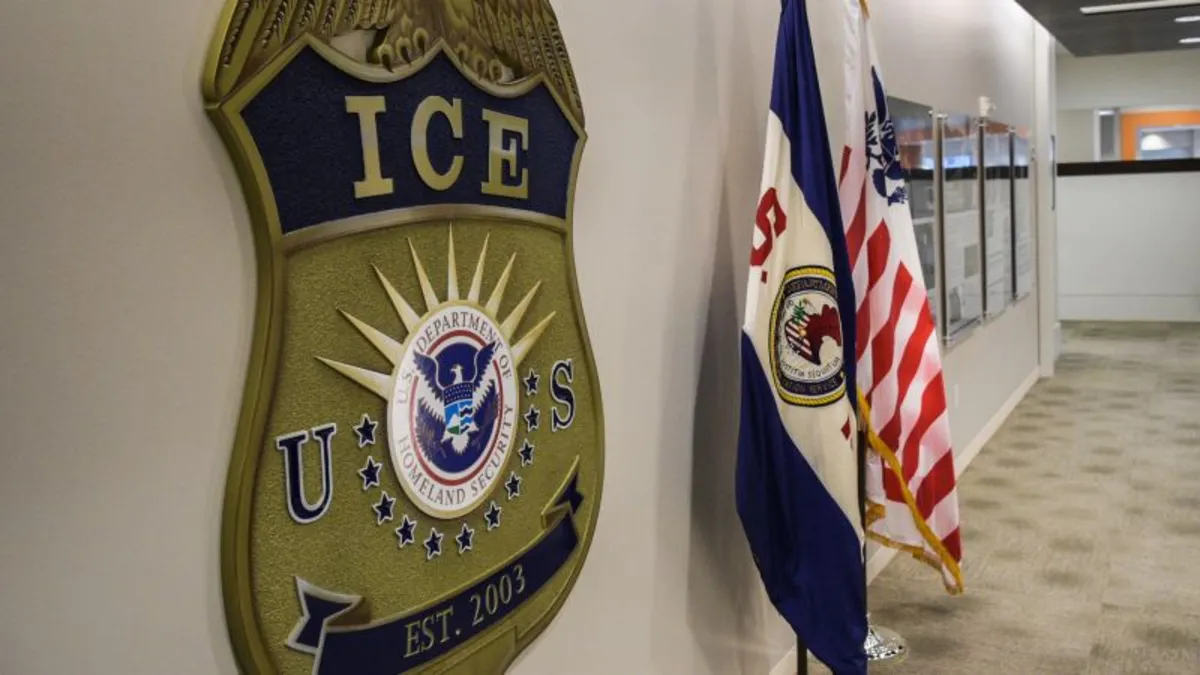
A federal judge announced on Friday that a 2-year-old US citizen, identified in court documents as V.M.L., was deported alongside her mother to Honduras. According to the Trump administration's stance, her mother requested that officials allow her child to accompany her during the deportation process.
US District Judge Terry Doughty stated that V.M.L. was released in Honduras on Friday afternoon, where she was with her mother, who is classified as an undocumented immigrant. The family’s legal team filed an emergency petition on Thursday, urging the court to mandate the immediate release of V.M.L. by the US Immigration and Customs Enforcement (ICE). The petition argued that the agency lacks any statutory or constitutional authority to detain the child since she is a US citizen, as she was born in Baton Rouge, Louisiana, on January 4, 2021.
The incident unfolded when V.M.L. and her family were taken into custody by ICE on Tuesday morning during what was described as a routine check-in with the agency. The petition details that her mother was attending this check-in when both the mother and V.M.L. were detained alongside her 11-year-old sister. Judge Doughty expressed concern about the circumstances of the deportation, stating, “In the interest of dispelling our strong suspicion that the government just deported a US citizen with no meaningful process,” and scheduled a hearing for May 16 in Monroe, Louisiana.
During the proceedings, Judge Doughty pointed out, “It is illegal and unconstitutional to deport, detain for deportation, or recommend deportation of a U.S. citizen,” referencing a 2012 case that addressed similar issues. He criticized the federal government’s justification, stating, “The court doesn’t know” if the mother truly wished for her child to be deported with her.
The government’s court documents argued that the child’s mother had expressed a desire to retain custody of V.M.L. in a handwritten note, which allegedly requested that the child accompany her to Honduras. A senior official from the Department of Homeland Security (DHS) stated in a CNN interview that it is common for parents to wish to be removed with their children, and asserted that “parents are asked if they want to be removed with their children, or ICE will place the children with someone the parent designates.”
The DHS official further emphasized that they take their responsibility to protect children seriously, assuring that they will continue collaborating with federal law enforcement to ensure the safety and protection of minors.
Shortly after the mother and her daughters checked into the ICE office in New Orleans, the father received a call from the agency informing him that his family had been taken to the immigration office. The petition states that when he arrived at the specified address, officers informed him that the mother was in custody and could not provide further information, although they indicated that she would call him soon.
The father later learned from an ICE officer that the family’s deportation was imminent. Disturbingly, he reported hearing his daughters and partner crying during the conversation. Despite reminding the officer that V.M.L. is a US citizen and cannot be deported, he was disconnected before he could provide contact details for their attorneys.
In response to the situation, the father sought to arrange provisional custody of his daughters with his sister-in-law, a US citizen residing in Baton Rouge. However, the petition claims that ICE refused this request, stating it was unnecessary since V.M.L. was already with her mother. The father was warned that he would face detention if he attempted to pick up his daughter.
In court documents, the federal government maintained that the mother had written in a letter expressing her intent to take her daughter with her to Honduras. They also argued that the man claiming to be V.M.L.’s father had not properly identified himself to ICE. The government concluded that V.M.L. is not at substantial risk of irreparable harm while with her mother, whom they classified as her lawful custodian.
This case highlights the complex intersections of immigration law and the rights of US citizens, particularly vulnerable children caught in such legal disputes. As the scheduled hearing approaches, many are left to question the implications of these actions on the lives of families facing deportation.